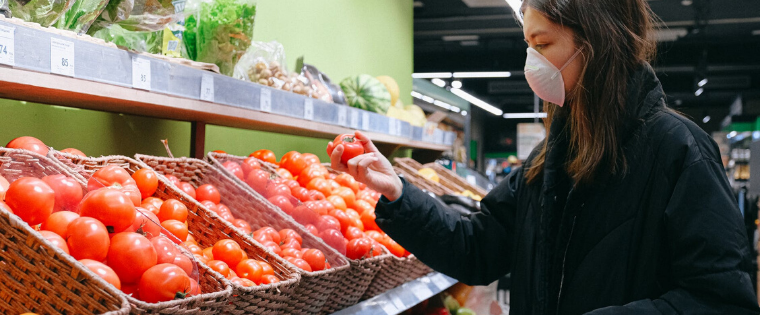Damage to Global Retail Sales — Except Food — Comes Into Focus

When will retail sales rebound?
That’s the question hanging in the air as country after country reported steep declines in retail sales in March during the coronavirus outbreak. Almost across all global economies the rise in revenue from groceries, pharmacies and other essential services was offset by sharp downturn in categories such as apparel amid the global shutdown of thousands of retail stores.
The U.S. Commerce Department’s preliminary report on retail sales released Wednesday showed a seasonally adjusted drop of 8.7% from February as the surge in essential items was outweighed by businesses closing and homebound consumers’ restricted spending. Excluding auto and gas sales, retail revenue fell 3.1%; the period included sales before widespread business shutdowns in mid-March.
If there are any signs of light, it could be in China, where coronavirus first appeared last year and forced an economic shutdown that is only now easing. While retail sales decreased in double digits during January and February, FocusEconomics forecasts a 7.3% increase for the year, down slightly from its forecast at the end of February.
Here is a sampling of how retail is fairing in some global markets:
- United States While sales fell overall in March, grocery revenue rose 26.7% and those at non-store retailers such as Amazon increased 3.1%. (As one indication of homebound consumers’ increasing time in the kitchen, seasonings supplier McCormick said its sales surged 90% during the week ended March 22, on top of a 65% bounce the prior week.) Sales at clothing and accessories chains dropped 50.5%, while revenue at furniture and home furnishing stores declined 26.8%, and those at electronics and appliance sales decreased 15.1%.
- China Retail sales slumped at the height of the pandemic in China, tumbling 20.5% in January and February with decreases in all categories save for food (+9.7%); downturns were led by apparel (-30.9), cosmetics (-14.1%) and jewelry (-41.1%), according to China’s National Bureau of Statistics. Figures haven’t been released yet for March. China posted its first Q1 decline in economic growth since at least 1992, and analysts expect gross domestic product will have shrunk 4% in Q1, reversing a 6% gain in Q4 2019.
- France Retail sales plunged 24.5% in March as increased revenue at grocery chains (7.4%) and hypermarkets (1.7%) was offset by a downturn in department stores (-19.3%), said the Bank of France in a report Wednesday. Since the start of the countrywide lockdown during the week of March 16, online traffic has risen 13% overall with websites of mass retailers seeing increases in traffic (162%) and total conversion rate (154%). In contrast, traffic and total conversions at the ecommerce sites of fashion retailers declined 523% and 59%, respectively.
- UK Grocery sales have jumped 7.6% year-on-year since the start 2020, the fastest pace in more than a decade ; in March alone, they more than tripled to $13.3 billion– higher even than seen during Christmas, according to Kantar Media. Discount retailers Lidl (18%) and Aldi (11%) posted the biggest gains during the 12-week period ended March 22, according to Kantar. In March alone, Tesco saw a 50% increase in food sales as part of an overall30% sales increase, as UK consumers stocked up on essential items, CEO David Lewis told investors. Overall UK fashion retail was down 42.9% from a year ago, due largely to the shutdown of brick-and-mortar stores, with footwear declining 32%, according to the research firm IMRG Capgemini.
- Germany The lockdown and quarantine measures caused February retail sales to surpass expectations as “hamster buying” was introduced to the lexicon as the German word for panic buying. Similar figures haven’t been released yet for March. February sales were up 6.4% year-on-year, besting analyst projections of 1.5%. February sales were 1.2% higher than in January, according to data from the German Statistical Office released Wednesday. Food, drink and tobacco revenue increased 7.8% year-on-year with grocery store revenues up 8.3% and pharmacy and cosmetics chains posting a 6.6% percent.
- Australia Many businesses have been closed since March 22 when the Australian government ordered a shutdown of non-essential services. February retail sales increased 0.4% from the previous month, reversing declines in December and January as consumers began stocking up on food and other household goods, according to the Australian Bureau of Statistics. While March figures haven’t been released, the Australian Retailers Association expects the coronavirus to have had a significant impact on business. Australia’s gross domestic product is expected to decline 2% in Q2 and 1.9% for the year, according to ANZ Bank Group. An upside in all this: Australia, which has lagged other developed countries in adopting ecommerce, may be catching up. Some online merchants have reported 300-400% increases in sales in some categories during the pandemic.




